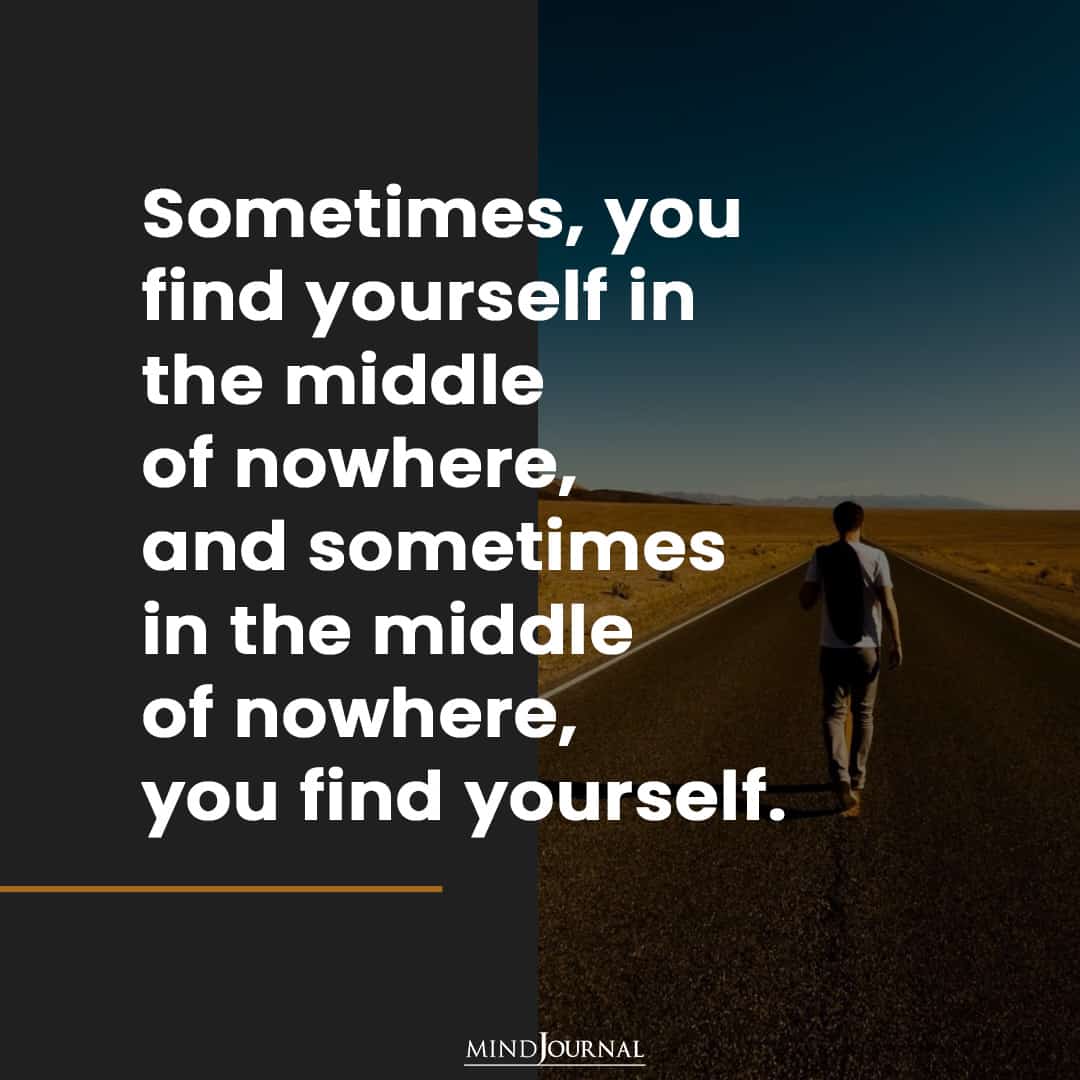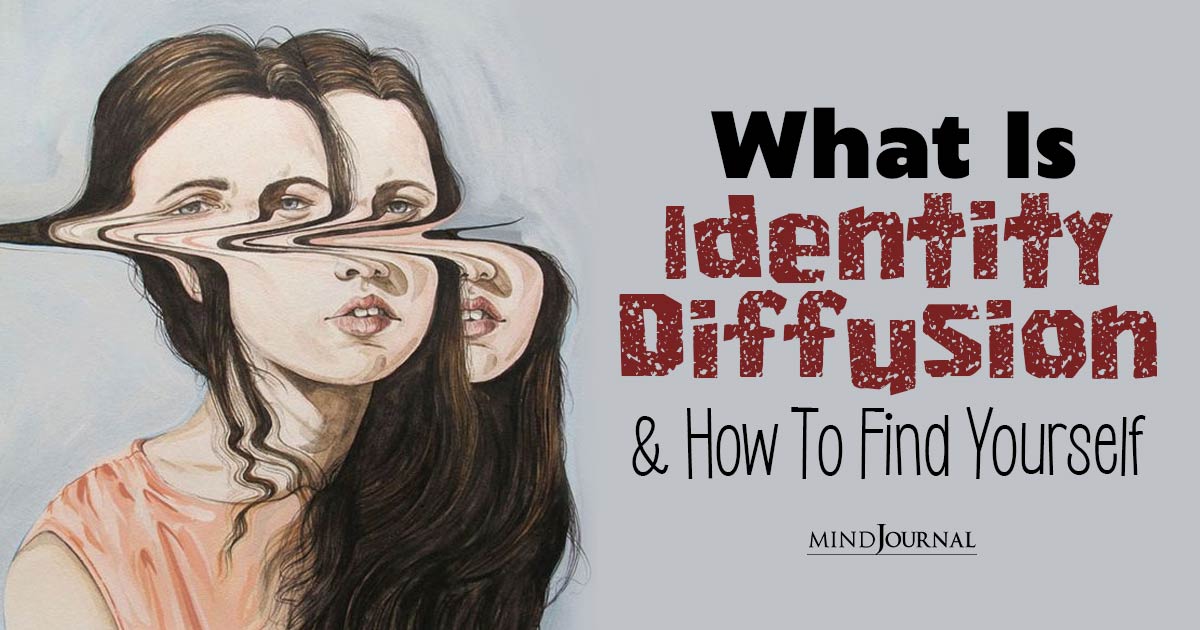Have you ever found yourself questioning who you truly are? Feeling lost and uncertain about your identity is a common experience that many adults face at some point in their lives. This phenomenon is known as identity diffusion. Let’s explore what is identity diffusion and how to find yourself.
What is Identity Diffusion?
Identity diffusion is a concept that explores the complexities of self-discovery and personal growth. It refers to a state of psychological confusion and uncertainty regarding one’s self-concept and personal identity. At its core, identity diffusion is a state of being uncertain about one’s goals, beliefs, and roles in life.
Identity diffusion in adults and adolescents is characterized by a lack of commitment to any specific set of values, goals, beliefs, or roles, leaving individuals feeling adrift and disconnected from their true selves. In essence, it is a state of not knowing who you are or where you fit in the world.
This concept stems from the famed psychologist Erik Erikson’s stages of psychosocial development. Erikson believed that during adolescence, individuals grapple with the task of forging a clear identity. Those who don’t navigate this challenge successfully end up in a state of identity diffusion.
However, contrary to popular belief, this isn’t solely an adolescent dilemma. So, what is identity diffusion when it comes to adults? It manifests as a continuous struggle to understand one’s place in the world, a lack of commitment to roles, beliefs, or professions.
It’s the feeling of being adrift without a clear compass to guide you.
Related: Redefining The Self: How Do You Discover Yourself Through Your Perception of Others

Identity Diffusion in Adults
While identity diffusion is commonly associated with adolescence and the process of forming a stable sense of self, it can also manifest in adulthood. In fact, many adults find themselves grappling with questions of identity as they navigate various life transitions, such as career changes, relationship shifts, or personal crises.
These experiences can challenge previously established identities and ignite a search for deeper meaning and purpose. You might ask, “Isn’t self-discovery a teenage thing?” While adolescence is indeed a critical period for identity formation, the journey doesn’t end there.
Life is full of changes—career shifts, personal losses, or societal upheavals—that can send anyone, regardless of age, into a spiral of identity confusion.
For adults, this can look like:
- Shifting Job Roles: One might frequently change jobs, not out of necessity, but because they’re unsure where their true passions lie.
- Relationship Patterns: Continuously entering and exiting relationships, seeking a ‘fit’ but never quite finding it.
- Changing Belief Systems: Swiftly adopting new ideologies or beliefs and discarding them just as quickly.
Examples of Identity Diffusion
Here are some examples of identity diffusion that should know about –
1. Career Identity Diffusion
Imagine an individual who has been working in the same job for years but feels unfulfilled and dissatisfied. They may experience identity diffusion as they question whether their chosen career aligns with their true passions and values.
This uncertainty can lead to a period of exploration and self-reflection, as they search for a more authentic professional path.
2. Relationship Identity Diffusion
A person who has recently ended a long-term relationship may find themselves in a state of identity diffusion. They may question their role as a partner, their own needs and desires, and what they truly want in future relationships.
This introspective journey can help them re-define their sense of self and establish healthier relationship dynamics.
3. Cultural Identity Diffusion
Individuals who have experienced a significant change in cultural context, such as immigration or relocation to a new country, may face identity diffusion.
They may grapple with conflicting cultural values, traditions, and expectations, leading to a quest for self-discovery and a balance between their heritage and their current environment.
To give you a clearer picture, here are some other relatable instances and examples of identity diffusion:
A. Sarah
She studied journalism, became a teacher, and is now dabbling in digital marketing—all within five years. When asked about her passion, she hesitates, unable to define what truly drives her.
B. Alex
He’s always the life of the party, constantly seeking new experiences. From mountain climbing to poetry readings, Alex tries everything but commits to nothing, hoping something will eventually resonate.
C. Ria
Raised in a religious household, she’s now exploring various spiritual paths, trying to find one that aligns with her ever-evolving beliefs.
Such examples remind us that identity diffusion is not just about “finding oneself” but about the hurdles and stumbling blocks faced in that quest.
Related: What Is Self-Validation? Understanding The Importance Of Acknowledging Your Worth
How to Find Yourself amidst Identity Diffusion
Here are a few strategies that can help you learn how to find yourself when trying to figure out what is identity diffusion and how to overcome it –
1. Self-Reflection
Engage in introspective practices such as journaling, meditation, or therapy. Take the time to explore your thoughts, emotions, and values.
Reflect on your past experiences, goals, and aspirations. Self-reflection allows you to gain insights into your authentic self and identify patterns that may be contributing to your identity diffusion.

2. Explore New Interests and Hobbies
Engaging in activities outside of your comfort zone can help you discover new passions and expand your sense of self. Try out different hobbies, join clubs or communities, and embrace opportunities for personal growth.
The process of exploration can lead to a deeper understanding of your likes, dislikes, and values.
3. Seek Support
Share your journey with trusted friends, family, or a therapist. Seeking support and guidance from others can provide valuable perspectives and help you navigate the complexities of self-discovery.
Surrounding yourself with a supportive network can offer reassurance and encouragement during times of uncertainty.
4. Embrace Change and Adaptability
Recognize that personal growth and self-discovery are ongoing processes. Be open to change and embrace the idea that your identity may evolve over time.
Embracing adaptability allows you to explore new possibilities and embrace the journey of self-discovery with curiosity and resilience.
Takeaway
In life’s vast and unpredictable journey, feeling lost can be as natural as finding oneself. Remember, it’s not about how quickly you can answer the question, “Who am I?” but about embracing the journey itself.
Understanding what is identity diffusion is akin to holding a mirror to oneself. While the reflection might be hazy at times, with patience, love, and persistence, clarity is always on the horizon.
Related: Journey To Self: 10 Movies About Self Discovery
Frequently Asked Questions (FAQs):
What is identity diffusion according to Erikson?
Identity diffusion, in Erikson’s theory, refers to a state of confusion and uncertainty about one’s identity and life direction.
What is the difference between identity crisis and identity diffusion?
Identity crisis involves active exploration and decision-making, while identity diffusion reflects confusion and lack of commitment in identity development.
What is the cause of identity diffusion?
Identity diffusion can result from factors like inadequate support, social pressures, or a lack of opportunities for self-discovery and identity exploration.










Leave a Reply